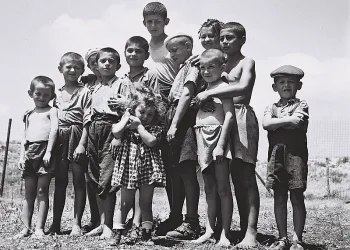Standing shoulder to shoulder in Brussels, the European Union and African Union reaffirmed their long-standing alliance in a Ministerial meeting marked by high ambition and clear intent.
With over 70 delegations and more than 50 ministers present, the message was unmistakable: the EU Africa partnership is not only intact, but evolving to meet the challenges of a rapidly changing world.
A Partnership Built on Trust and Action
Kaja Kallas, the EU’s High Representative, emphasized that Africa can count on Europe as a reliable partner.
The foundation of this bond lies in years of cooperation, particularly in matters of peace and security, economic development, and digital innovation.
As she put it, “This was a true Team Europe spirit.”
The meeting reaffirmed Europe’s commitment to African stability through the European Peace Facility, which has already allocated over €1 billion in support.
This funding has delivered vital assets such as drones, surveillance aircraft, and maritime equipment, enhancing regional security and deterrence against destabilising forces.
Core Investment Areas: Security, Economy, and Innovation
Three primary pillars guided the dialogue:
-
Peace and Security: Over 50% of EU defence missions are active in Africa.
-
Economic Development: Nearly €150 billion is committed under the EU Global Gateway strategy.
-
Digital and Green Innovation: Joint efforts target infrastructure and clean energy initiatives.
Areas of Cooperation
| Focal Area | EU Investment/Support | Impact Goals |
|---|---|---|
| Peace and Security | €1 billion via European Peace Facility | Regional stability, counter-terrorism |
| Green Transition | €150 billion via Global Gateway | Sustainable energy, climate resilience |
| Digital Infrastructure | Broadband, AI, tech partnerships | Improved connectivity, tech jobs |
| Migration Root Causes | Local job creation, access to capital | Reduced forced displacement |
Migration: Addressing Root Causes, Not Just Symptoms
Migration remains one of the most sensitive topics in the EU Africa partnership. Kallas acknowledged the frustrations around short-term solutions and underlined the need to address migration root causes.
The conversation focused on creating jobs in Africa, investing in critical raw materials, and reforming the global financial system to ensure fair access to capital.
She pointed out that “people do not want to leave their homes unless they really have to,” highlighting the moral and practical necessity of supporting African prosperity from within.
Confronting Disinformation and Foreign Influence
Another recurring theme was misinformation in Africa, particularly campaigns driven by foreign actors such as Russia.
Kallas admitted that combating disinformation is increasingly difficult in the digital age, quoting Winston Churchill to underscore the speed at which lies now travel.
Yet, despite the challenge, the EU is committed to building resilience through digital literacy and counter-narrative strategies.
A Shared Global Responsibility
The European Union has championed the African Union’s inclusion in global governance platforms, such as the G20.
Together, both unions represent approximately 40% of voting power at the United Nations, reinforcing their joint ability to influence reforms in global institutions.
This commitment was solidified in the communique signed during the session, which reiterates support for the UN Charter and underscores the mutual goal of stronger multilateralism.
Looking Toward the 2025 Summit
As discussions turn to the upcoming African Union summit, both sides have laid out a clear roadmap:
-
Expand cooperation in artificial intelligence and critical raw materials.
-
Reinforce Africa digital investment strategies to support youth employment.
-
Push for greater regional integration to drive economic growth.
-
Mobilize resources through revised international financial architecture.
While topics like overfishing and food security were touched on less directly, they remain part of broader sustainability concerns—especially as the EU looks to align its internal policies with external priorities.
In Conclusion
The Ministerial meeting in Brussels showcased a EU Africa partnership that is no longer reactive, but increasingly strategic.
With shared goals across peace, prosperity, and digital progress, both continents are investing not just in each other—but in a more equitable global future.
As Kallas put it, “The will to do more is strong,” and that sentiment resonates as both sides prepare for a pivotal summit later this year.
Sources: European Union.
Prepared by Ivan Alexander Golden, Founder of THX News™, an independent news organization delivering timely insights from global official sources. Combines AI-analyzed research with human-edited accuracy and context.







